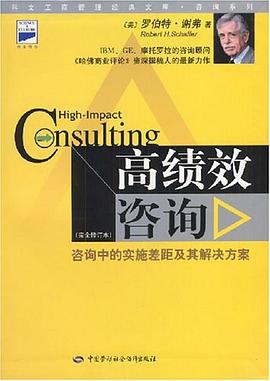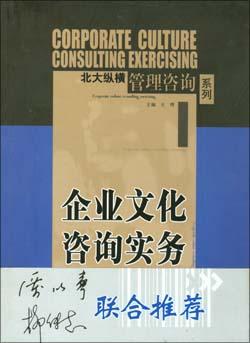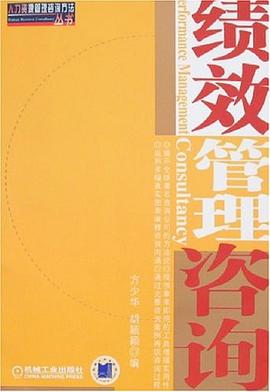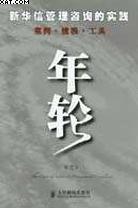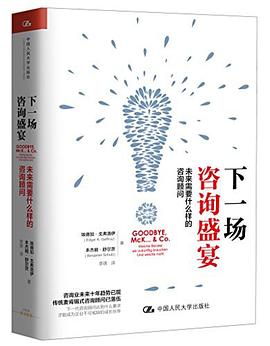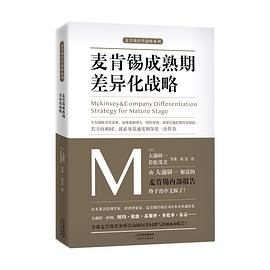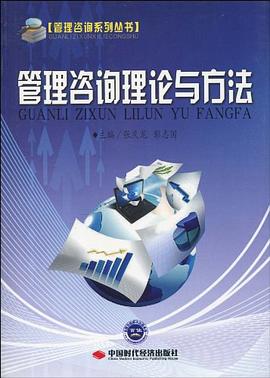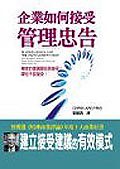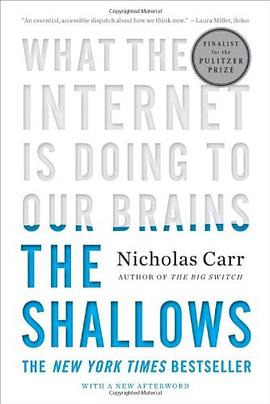

具体描述
"Is Google making us stupid?" When Nicholas Carr posed that question, in a celebrated Atlantic Monthly cover story, he tapped into a well of anxiety about how the Internet is changing us. He also crystallized one of the most important debates of our time: As we enjoy the Net's bounties, are we sacrificing our ability to read and think deeply? Now, Carr expands his argument into the most compelling exploration of the Internet's intellectual and cultural consequences yet published. As he describes how human thought has been shaped through the centuries by "tools of the mind"--from the alphabet to maps, to the printing press, the clock, and the computer--Carr interweaves a fascinating account of recent discoveries in neuroscience by such pioneers as Michael Merzenich and Eric Kandel. Our brains, the historical and scientific evidence reveals, change in response to our experiences. The technologies we use to find, store, and share information can literally reroute our neural pathways. Building on the insights of thinkers from Plato to McLuhan, Carr makes a convincing case that every information technology carries an intellectual ethic--a set of assumptions about the nature of knowledge and intelligence. He explains how the printed book served to focus our attention, promoting deep and creative thought. In stark contrast, the Internet encourages the rapid, distracted sampling of small bits of information from many sources. Its ethic is that of the industrialist, an ethic of speed and efficiency, of optimized production and consumption--and now the Net is remaking us in its own image. We are becoming ever more adept at scanning and skimming, but what we are losing is our capacity for concentration, contemplation, and reflection. Part intellectual history, part popular science, and part cultural criticism, The Shallows sparkles with memorable vignettes--Friedrich Nietzsche wrestling with a typewriter, Sigmund Freud dissecting the brains of sea creatures, Nathaniel Hawthorne contemplating the thunderous approach of a steam locomotive--even as it plumbs profound questions about the state of our modern psyche. This is a book that will forever alter the way we think about media and our minds.
作者简介
尼古拉斯·卡尔,著名科技作家。出版有《浅薄》、《IT不再重要》、《要紧吗?》等著作,在《纽约时报》、《大西洋月刊》、英国《卫报》、《连线》杂志及其他报刊上经常发表文章。卡尔现与妻子居住在美国科罗拉多州。
目录信息
读后感
不知道各位有没有这种感觉: 浏览网页的时候,常常被文章中间或者侧边栏的链接吸引了去,浮光掠影地从一个链接跳到另一个链接,很少返回最初的页面;有时,也会Mark存档一些看上去很有价值的长文,结果却很少回去读它们。 在电脑前阅读很难有以前读纸质书的全神贯注。我们更...
评分我们看到过以下的画面吧:手中在处理着工作的表格,电脑右下角的QQ在不停的闪,微博里同时有人@你了,在人人网发表的图片又有人评论了,刚好邮件提醒告诉你有新邮件来了,傍边的手机还在不停的震:因为微信群里面又有新消息了。各种信息载体同一时间,从四面八方向我们扑过来。...
评分這本書是我這學期的rhetoric課上的用書. 不得不說, 各種中槍. 有了網絡根本沒有耐心靜下來看書, 寧願刷豆瓣看無聊沒意義的直播文也不願意看正真有用的經典著作... 前天讀了第五章, 印象最深刻的是那些統計數字, 說是最近人們面對screen(電腦, 電視, 還有smartphone)評價時間是...
评分不知道各位有没有这种感觉: 浏览网页的时候,常常被文章中间或者侧边栏的链接吸引了去,浮光掠影地从一个链接跳到另一个链接,很少返回最初的页面;有时,也会Mark存档一些看上去很有价值的长文,结果却很少回去读它们。 在电脑前阅读很难有以前读纸质书的全神贯注。我们更...
评分我们的大脑具有高度的可塑性,书中提到的心理学和生理学实验已经足够证明了,互联网改变我们大脑的结构,进而影响我们的思维方式、阅读方式注意力等等,我们不得不面对。就在我读这本书的过程中,我发现我已经不太容易集中注意力将某一章连续读完,即使读完也没有太深刻的印象...
用户评价
我得说,这本书的叙事方式真是让我耳目一新,它不像市面上那些一本正经的学术著作,而更像是一位饱学之士,带着一种温和的、略带忧虑的眼神,在向你娓娓道来他对于当下社会文化变迁的观察。作者并没有直接抛出宏大的理论,而是通过一个个生动的故事,一个个细致的观察,层层剥茧,将我们带入一个关于“浅薄”与“深度”的深刻探讨之中。我特别喜欢他对于那些日常生活中看似不起眼的现象的挖掘,比如,当我们越来越习惯于通过社交媒体来构建自我形象,我们是不是也因此失去了真实面对自己的勇气?当我们越来越依赖于算法推荐来获取信息,我们的认知边界是不是也在不知不觉中被限制?这些问题,作者并没有直接给出答案,而是通过他充满智慧的笔触,引导我们自己去思考,去探索。我读这本书的时候,常常会感觉自己像是在参与一场漫长的对话,作者在抛出话题,而我则在脑海中回应,在现实生活中寻找例证。这种互动式的阅读体验,让我觉得这本书不仅仅是一本书,更像是一位良师益友,在陪伴我一起成长。它没有那些空洞的口号,没有那些煽情的论调,只有冷静的分析,深刻的洞察,以及对我们这个时代一种更为真实、更为复杂的呈现。它让我看到了,在这个信息爆炸的时代,我们可能正在面临着一场前所未有的认知危机,而这本书,正是对这场危机的一次深刻的警示,也是一次充满希望的呼唤,呼唤我们找回那份久违的深度和专注。
评分这本书对我来说,更像是一次精神上的洗礼,一次对我们所处时代的深刻反思。作者以一种近乎哲学的视角,审视了信息技术,特别是互联网,如何悄无声息地改变了我们的大脑,我们的认知,以及我们与世界互动的方式。我被作者描绘的那些场景深深吸引,那些我们已经习以为常的“在线”生活,在作者的笔下,似乎都蒙上了一层令人不安的阴影。他并没有简单地妖魔化技术,而是以一种更为 nuanced 的方式,揭示了技术背后所蕴含的复杂性,以及它对我们人类心智的潜在影响。我尤其喜欢书中对于“注意力”的探讨,它让我们意识到,在这个信息爆炸的时代,注意力本身已经成为一种稀缺的资源,而我们,却在不经意间,将它廉价地消耗掉了。读这本书,我常常会停下来,去审视自己的行为,去思考那些我以为是“自由选择”的行为,背后究竟是怎样的力量在驱动。它就像一面镜子,照出了我们这个时代许多令人担忧的趋势,但同时,它也像是一盏明灯,指引我们去寻找更深层次的意义,去重塑我们与信息、与世界、与自己的关系。这本书不是一个简单的“好”与“坏”的判断,它是一个邀请,邀请你去思考,去探索,去在信息的海洋中,找到属于你自己的那片宁静和深度。
评分这本书,我必须说,它不是一本轻松的读物,但绝对是一本能让你脱胎换骨的书。作者以一种近乎先知的洞察力,揭示了信息技术,尤其是互联网,如何悄无声息地改变了我们的大脑,我们的思维方式,以及我们与世界建立联系的模式。我被书中对“浅薄化”趋势的描绘深深吸引,那些我们每天都在经历的,例如不断刷新的社交媒体,碎片化的信息流,以及对即时满足的追求,在作者的笔下,都变成了一种令人担忧的社会文化现象。他并没有简单地批判技术,而是深入剖析了技术背后的逻辑,以及这种逻辑如何与我们人类的心智相互作用,从而形成一种新的、可能并不那么理想的生存模式。我尤其喜欢书中关于“注意力”的探讨,它让我意识到,在这个信息爆炸的时代,注意力本身已经成为一种稀缺的资源,而我们,却在不经意间,将它廉价地消耗掉了。读这本书,我常常会停下来,去审视自己的行为,去思考那些我以为是“自由选择”的行为,背后究竟是怎样的力量在驱动。它就像一面镜子,照出了我们这个时代最深刻的困境,同时也像一盏明灯,指引着我们去思考,去寻找,去重塑我们与信息、与世界、与自己的关系。它是一部关于“失落”的书,失落的是深度,是专注,是那种与世界建立真实而深刻连接的能力;但同时,它也是一部关于“找回”的书,只要我们愿意停下脚步,去倾听,去反思,去主动地选择深度和专注。
评分我想用“震撼”这个词来形容我阅读这本书的感受,但这种震撼并非是突如其来的巨响,而是如潮水般,一点点地淹没了我,让我不得不停下来,去审视自己,审视这个时代。作者以一种近乎学者的严谨和诗人的敏感,揭示了信息技术,特别是互联网,对我们思维方式和存在状态的深刻影响。书中对“浅薄化”的描绘,让我不禁回想起自己无数个被手机吸引的瞬间,那些不自觉地刷新的页面,那些零散的信息碎片,它们是如何一点点地将我的注意力瓦解,让我难以沉浸于任何一个需要深度思考的任务。作者并没有简单地指责技术,而是深入剖析了技术背后的逻辑,以及这种逻辑如何与我们人类的心智相互作用,从而形成一种新的、可能并不那么理想的生存模式。我尤其被书中对“内省”的探讨所触动,在这个信息爆炸的时代,我们似乎越来越难以找到独处的时间和空间,去进行深度的自我反思,去倾听内心的声音。这本书,就像一面镜子,照出了我们这个时代最深刻的困境,同时也像一盏明灯,指引着我们去思考,去寻找,去重塑我们与信息、与世界、与自己的关系。它不是一本让你读完就丢弃的书,它会在你的脑海中留下深刻的印记,让你在未来的日子里,在面对信息的洪流时,能够更加审慎,更加有意识,更加地,“深”入。
评分这本书的文字,有一种独特的魔力,它能够穿透表象,直抵我们内心深处那些最微妙的触动。作者以一种近乎艺术家的敏感,描绘了我们在信息时代所经历的种种挣扎与转变。它并非直接批判技术,而是通过对人类心智在技术冲击下的变化进行细腻的描摹,让我们看到,那些看似微不足道的习惯,是如何一点点地重塑了我们的认知和行为模式。我尤其被书中对“注意力”的论述所吸引,作者将注意力比作我们心智的货币,而在这个信息爆炸的时代,我们却常常不自觉地将它廉价地抛洒出去,换取那些短暂的、浅薄的满足感。读这本书,我常常会陷入一种沉思,一种对自己过往行为模式的审视。那些我曾经引以为傲的“ multitasking ”能力,在作者的笔下,似乎变成了一种分散注意力的陷阱。那些我用来消磨时间的社交媒体,在作者的分析下,似乎也隐藏着让我们变得越来越孤立的根源。这本书的伟大之处在于,它让我们看到了,在我们看似自由选择的背后,隐藏着怎样的技术力量,以及这些力量如何影响着我们的思维和情感。它是一部关于“失落”的书,失落的是深度,是专注,是那种与世界建立真实而深刻连接的能力;但同时,它也是一部关于“找回”的书,只要我们愿意停下脚步,去倾听,去反思,去主动地选择深度和专注。
评分这本书,对我来说,绝对是一次“意想不到”的旅程,它带我深入到我们这个信息爆炸时代的腹地,去审视那些我们可能从未认真思考过的问题。作者以一种极其迷人的叙事方式,将那些复杂的社会和心理学概念,编织成一个个生动的故事,让我仿佛置身其中,去感受那些变化是如何悄无声息地发生在我们身上的。我最被打动的是,作者并没有简单地宣扬“回归过去”的怀旧情绪,而是以一种非常客观和理性的方式,分析了信息技术如何重塑了我们的认知框架,以及这种重塑可能带来的潜在风险。读这本书,我常常会感到一种莫名的忧虑,因为我看到了自己在那些被描述的模式中的影子,看到了我正在用一种“浅薄”的方式,去消费那些本应需要深度理解的信息。作者对“注意力”的描绘,让我印象深刻,他将其视为我们心智的核心资源,而我们,却在这个数字化的世界里,毫不犹豫地将它廉价地挥霍。这本书的价值在于,它提供了一个全新的视角,去理解我们所处的时代,去认识我们在信息洪流中的位置,以及那些我们可能正在付出的、不为人知的代价。它是一次关于“深度”的觉醒,一次关于“专注”的呼唤,一次关于“真实连接”的探索。
评分我必须承认,这本书的阅读过程,与其说是享受,不如说是一种挑战,但绝对是值得的挑战。作者以一种极其精妙且富有洞察力的方式,剖析了信息技术,尤其是互联网,在我们这个时代所带来的深远影响,这种影响不仅仅是信息获取的便捷,更是对我们思维方式、情感体验,乃至我们作为个体的自我认知产生的根本性改变。书中对“浅层化”的描绘,让我不寒而栗,却又深感共鸣。我们被鼓励着去“多任务处理”,去即时反馈,去快速消费信息,而这些行为,恰恰是在一点点地侵蚀我们进行深度思考、持续专注的能力。我经常在阅读某一段落时,会突然停下来,回想起自己日常生活中类似的场景,那些不自觉地拿起手机查看通知的行为,那些在阅读长篇内容时容易分心的瞬间,都让我意识到,作者的观察是多么的精准和深刻。这本书不是在给你灌输什么大道理,它更像是一种引导,一种温和的敲打,让你开始审视那些你可能从未认真思考过的问题:我们是否正在失去“深度”?我们是否正在用表面的“连接”来代替真实的“联结”?这本书的价值在于,它提供了一个全新的视角,去理解我们所处的这个时代,去认识我们在信息洪流中的位置,以及那些我们可能正在付出的、不为人知的代价。它让我开始重新思考,在信息的汪洋大海中,我应该如何航行,才能不至于迷失方向,才能真正抵达彼岸。
评分这本书就像一剂清醒剂,它以一种温柔却无比坚定的力量,将我从信息洪流的迷雾中拉了出来。作者并没有用激烈的言辞去批判什么,而是以一种近乎诗意的语言,描绘了我们这个时代在信息技术飞速发展之下,人类心智和社交模式所发生的深刻而又微妙的转变。我尤其惊叹于作者对细节的捕捉能力,那些我们每天都在经历,却从未认真思考过的现象,在作者的笔下,都变得充满了意义。比如,我们对于“多任务处理”的迷恋,对于即时满足的渴求,对于“浅阅读”的沉溺,这些行为模式背后,究竟隐藏着怎样的代价?这本书让我开始反思,我们所追求的“连接”,究竟是真的连接,还是另一种形式的孤立?我们所获取的“信息”,究竟是知识,还是只是被切割成碎片的海量数据?作者并没有给出明确的答案,但他通过引人入胜的叙述,以及那些发人深省的例子,引导我们自己去寻找答案。读这本书,就像是在进行一次心灵的探索,它让你看到,在这个看似便捷和充裕的时代,我们可能正在失去某些更宝贵的东西,比如深度思考的能力,比如专注的力量,比如与他人建立真实而深刻联系的能力。它不是一本让你看完就忘的书,它会在你的脑海中留下深刻的印记,让你在未来的日子里,在面对信息洪流时,能够更加审慎,更加有意识地去选择,去体验,去思考。
评分这本书带给我的冲击,远不止于文字本身,更在于它引发的那些关于“存在”的深度思考。作者以一种近乎文学化的笔触,描绘了我们当下这个时代最为深刻的困境之一:信息的泛滥如何稀释了我们的注意力,又如何在不知不觉中改变了我们思考和感受世界的方式。我尤其被作者对那些细微之处的描绘所打动,例如,那些不断弹出的通知,那些为了抓住我们眼球而设计的界面,它们是如何一点点地蚕食着我们本就有限的注意力,让我们变得越来越难以集中精神,越来越习惯于浅尝辄止。我常常在阅读时,会反思自己过去的行为模式,那些我曾经认为“高效”的学习方式,那些我用来消磨时间的娱乐项目,在作者的笔下,似乎都染上了一层令人不安的色彩。它让我意识到,我们可能正在用一种非常昂贵的方式,换取那些短暂的、浅薄的“连接”和“信息”。书中的一些段落,如同精妙的诊断,将我们这个时代的种种弊病一一剖析,却又不动声色,不带评判,只是陈述,只是呈现。这种冷静的叙述方式,反而更能触动人心,因为它让你觉得,这不仅仅是作者个人的观察,更是我们共同的经历,是我们正在经历的时代症候。读这本书,就像是进行了一次漫长的、关于“专注”的冥想,它让你看到,在我们看似自由选择的海量信息面前,我们其实可能正在失去某种更宝贵的东西,那种沉浸于深度思考的能力,那种与世界建立真实而深刻连接的能力。它是一部关于“失落”的书,但也是一部关于“找回”的书,前提是你愿意停下脚步,去倾听那些来自内心深处的呼唤。
评分这本书,我必须说,简直就是一部精神按摩,或者说,一次深刻的自我审视的邀请。它不是那种你随手翻翻就能丢在一边的读物,而是需要你沉下心来,一点点地啃,去品味作者文字中那些不动声色的洞察。我读它的时候,常常会不自觉地停下来,对着书页发呆,脑海里涌现出无数零散的画面和思考,那些关于我们与世界连接方式的微妙变化,以及这些变化背后隐藏的、我们可能并未察觉的代价。它像一面镜子,映照出我们在这个信息爆炸时代里,那个越来越碎片化、越来越浅薄的自我。我特别喜欢作者对那些看似无关紧要的细节的捕捉,那些不经意间流露出的生活片段,却能引出对更宏大命题的探讨。你读着读着,就会发现自己仿佛置身于一个由文字构建的巨大迷宫,而作者就是那个温和的向导,引领你穿梭其中,时不时点拨你一下,让你看到那些隐藏在迷雾中的真正要义。这本书不是在给你答案,它更像是在抛出问题,让你自己去寻找那些属于你的答案。它迫使我去重新审视那些我习以为常的生活方式,那些我赖以生存的信息获取渠道,那些我用来定义“自我”的种种方式。读完它,你会觉得整个世界都变得不一样了,你对周遭的一切,对自己的内心,都多了一份前所未有的清醒和警觉。它不是一种轻松的阅读体验,但绝对是一种非常有价值的体验,它会在你的脑海里留下深深的印记,让你在未来的日子里,在面对那些信息洪流时,能够更加审慎,更加有意识。
评分Mind Boggling
评分Mind Boggling
评分嗯感觉又书托来的
评分Mind Boggling
评分嗯感觉又书托来的
相关图书
本站所有内容均为互联网搜索引擎提供的公开搜索信息,本站不存储任何数据与内容,任何内容与数据均与本站无关,如有需要请联系相关搜索引擎包括但不限于百度,google,bing,sogou 等
© 2026 book.quotespace.org All Rights Reserved. 小美书屋 版权所有


